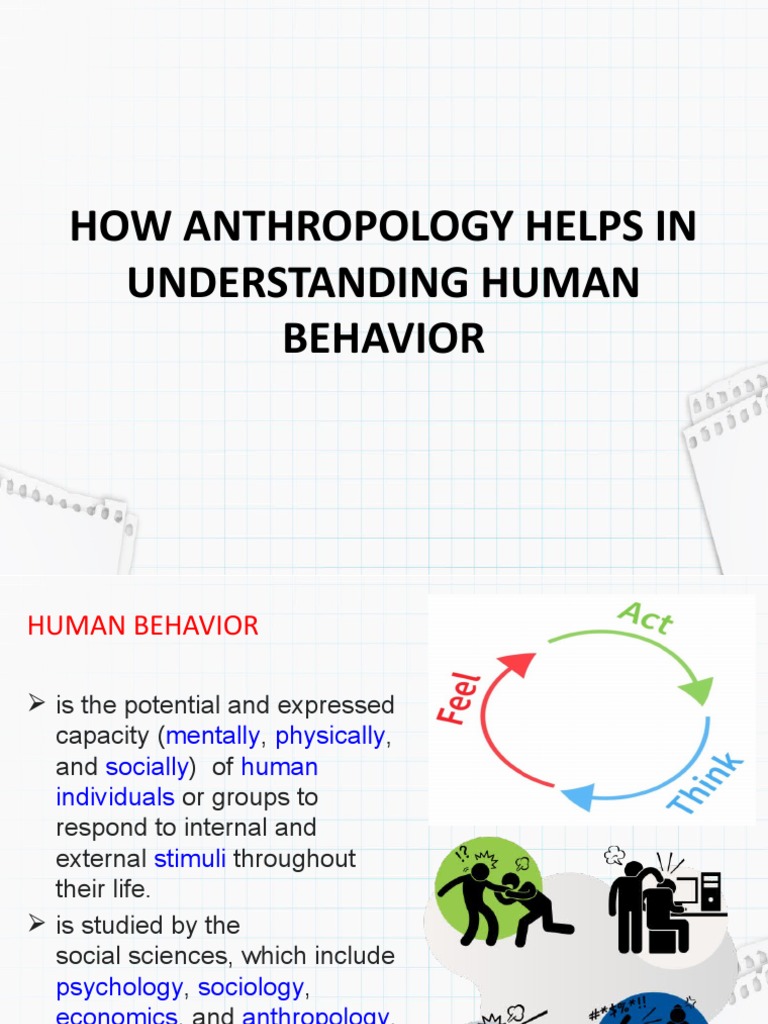The field of anthropology serves as a profound lens through which human behavior is examined, contextualized, and understood. At the core of this discipline lies the tenet of cultural relativism, which posits that the beliefs, values, and practices of a culture must be understood within their own context rather than through the prism of another culture. This perspective is vital for comprehending the intricate tapestry of human behavior across diverse societies. This article delves into the multifaceted aspects of human behavior as observed through the anthropological lens, emphasizing cultural relativism as a focal point.
1. Defining Cultural Relativism
Cultural relativism emerged as a philosophical approach that challenges ethnocentrism—the tendency to view one’s own culture as superior. By encouraging a non-judgmental examination of cultural practices, anthropologists promote an appreciation for the diversity inherent in human societies. This theory underscores that behaviors, customs, and norms should not be evaluated against the standards of another culture; instead, they should be analyzed according to the specific historical, social, and environmental contexts that shape them.
2. The Role of Ethnography
Ethnography, as a methodological cornerstone of anthropology, plays a pivotal role in understanding human behavior. Through immersive fieldwork, anthropologists collect qualitative data that captures the lived experiences of individuals within their cultural milieu. This approach enables researchers to uncover subtleties in social interactions, rituals, and everyday practices that may elude superficial observations. By prioritizing the voices of the people studied, ethnographers advocate for a nuanced understanding of cultural practices and the behaviors stemming from those practices.
3. Social Constructs and Human Behavior
Human behavior cannot be extricated from the social constructs that underpin cultural norms. Elements such as gender roles, familial structures, and social hierarchies are shaped by cultural frameworks, thereby influencing individual actions and societal interactions. For example, the concept of masculinity varies significantly across cultures, affecting how men express emotions, participate in family life, and engage with community. Anthropologists investigate these constructs, revealing how they mold behavior and reinforce or challenge societal expectations.
4. Rituals and Behaviors
Rituals serve as a cultural lens through which anthropologists examine human behavior. They encapsulate shared beliefs and values while offering insights into the collective psyche of a community. Considered essential for social cohesion, rituals—from rites of passage to religious ceremonies—often dictate behavior, instilling a sense of identity and belonging. An anthropological perspective reveals that rituals provide frameworks for navigating the complexities of human existence, often highlighting behavioral patterns reflective of broader cultural narratives.
5. The Influence of Environment
Environmental factors undeniably shape human behavior, and anthropology emphasizes their significance in a cultural context. For instance, subsistence strategies—how a society acquires and utilizes resources—greatly influence social behavior. Hunter-gatherer societies exhibit different social structures and interpersonal interactions compared to agrarian or industrial societies. This ecological perspective allows anthropologists to understand how the natural environment informs not only economic practices but also social relationships and cultural expressions.
6. Language and Communication
The intricate relationship between language and behavior is another critical aspect explored through an anthropological lens. Language not only serves as a tool for communication but also reflects and reinforces cultural values. The study of linguistic anthropology examines how language shapes our understanding of reality and influences behavior. The concepts of politeness, turn-taking in conversation, and even the categorization of emotions are culturally contingent and reveal significant behavioral patterns. Linguistic relativity posits that the structure of a language affects its speakers’ worldview, thereby offering profound insights into the nexus between language and human behavior.
7. Globalization and Cultural Hybridization
In the contemporary world, globalization presents new challenges and opportunities for understanding human behavior. The interaction between disparate cultures leads to cultural hybridization, where elements from different cultural contexts amalgamate, resulting in novel behaviors and practices. Anthropologists are tasked with examining how traditional customs adapt or persist in the face of rapid change. This dynamic offers valuable insights into the resilience of cultures, the negotiation of identity, and the evolution of societal norms.
8. Ethical Considerations in Anthropological Research
The exploration of human behavior through an anthropological framework raises imperative ethical considerations. As anthropologists engage with diverse communities, they must navigate power dynamics and representation carefully. Ethical research involves a commitment to honesty, respect for cultural beliefs, and the prioritization of the interests of the people being studied. This ethical lens is crucial for fostering meaningful relationships and ensuring that the outcomes of anthropological work serve the communities involved.
9. Concluding Thoughts: Embracing Complexity
Anthropology, through the lens of cultural relativism, provides a comprehensive understanding of human behavior that honors the complexities and intricacies of cultural diversity. By examining the interplay of environment, social constructs, language, and globalization, anthropologists unveil the rich tapestry of human existence. Embracing this complexity is essential not only for academic discourse but also for fostering empathy and comprehension in an increasingly interconnected world. It is through this nuanced understanding that one comes to appreciate the multitude of human experiences, ultimately enriching our collective narrative.
